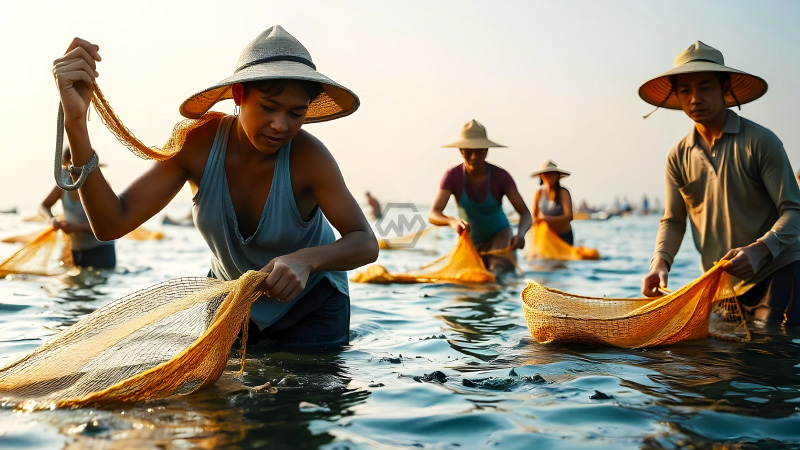- Fishermen around Tonle Sap Lake are shifting to eel farming as traditional fishing yields decline due to environmental changes.
- Climate change, upstream dams, and deforestation have severely impacted fish stocks in Southeast Asia’s largest lake.
- Organizations like VSO are providing resources and training to support local fishermen’s transition to aquaculture.
As environmental changes wreak havoc on the Tonle Sap Lake ecosystem, Cambodian fishermen are seeking new ways to sustain their livelihoods.
The shift to aquaculture represents both an opportunity and a challenge. While raising eels can be profitable, it requires specialized knowledge and resources.
From Fishermen to Farmers: Eel Farming Emerges as a Solution for Tonle Sap Communities
The decline of fish stocks at Tonle Sap Lake has forced many families to abandon traditional fishing. As they adapt to changing environmental conditions, some are seeking land-based agricultural opportunities, like rice farming. This transition illustrates the profound impact of ecological changes on local livelihoods and emphasizes the need for sustainable practices in agriculture and aquaculture.
Eel farming offers a promising alternative, given the high demand for eels in Asian markets. Programs aimed at enhancing aquaculture practices are gaining momentum, allowing fishermen to gain better control over their income. By cultivating eels, communities can reduce their reliance on diminishing fish stocks while also diversifying their economic activities.
While the potential for aquaculture is encouraging, significant hurdles remain. Fishermen face challenges such as disease management and maintaining optimal conditions for raising eels. Moreover, the continued impacts of illegal fishing and overfishing threaten to destabilize the region further, complicating the path toward sustainability.
As these communities navigate this complex transition, the importance of adaptive strategies and resource support cannot be overstated. Eel farming may provide a viable livelihood, but the need for sustainable environmental practices and community resilience remains critical for long-term success.
The plight of Cambodian fishermen transitioning to eel farming underscores the need for adaptive strategies in the face of environmental challenges, highlighting both resilience and the quest for sustainable livelihoods.
“Aquaculture, such as eel farming, is a way for people to take more control over their income source and livelihood.” – Zeb Hogan



